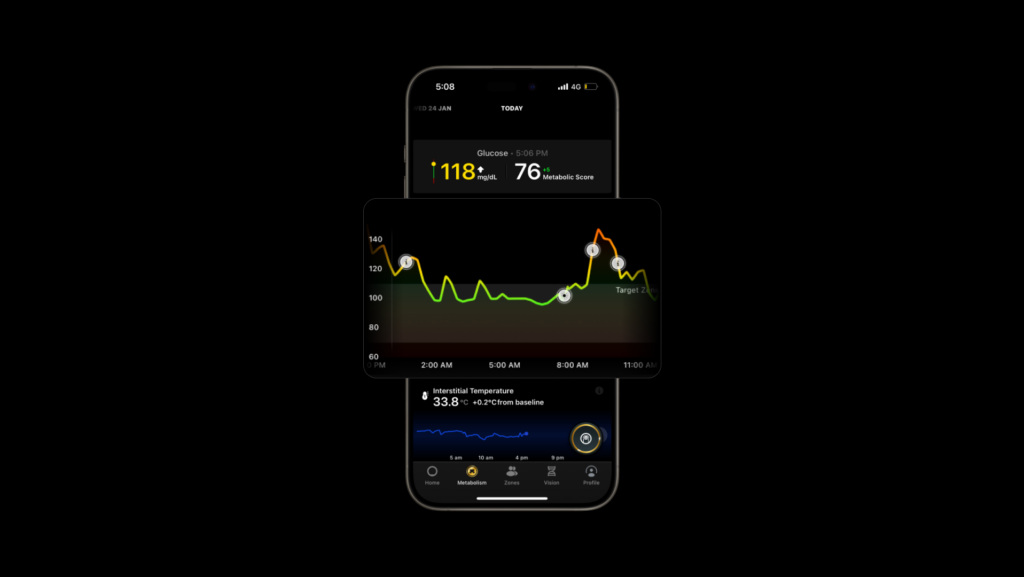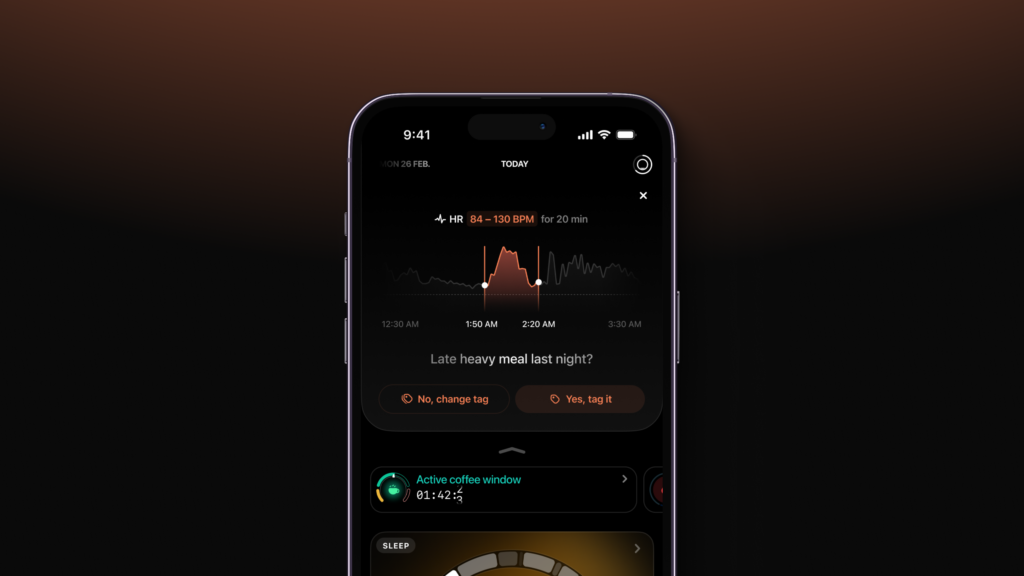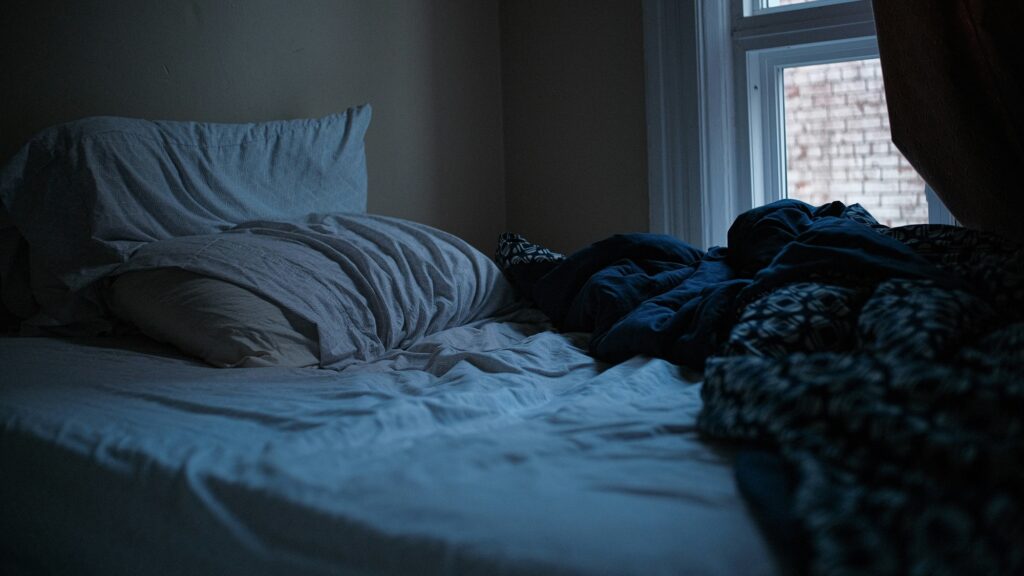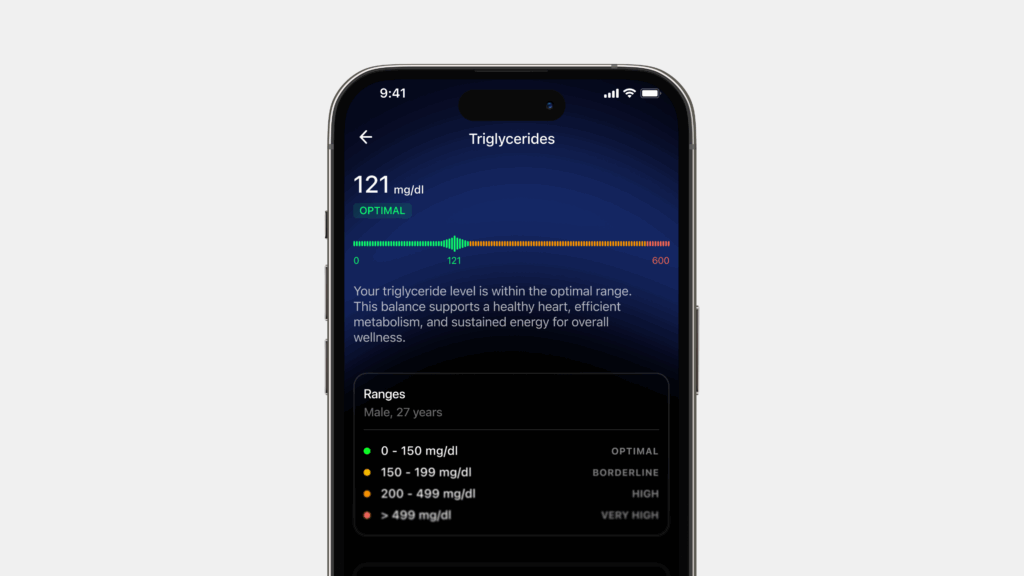If you’re often waking around 3 AM each night and wondering why, it could be your metabolism.
Metabolism is your body’s system that turns food into fuel so your body can keep running – breathing, thinking, repairing cells, and staying warm – and it even runs while you sleep.
3AM typically coincides with your deepest sleep phase, so consistently waking around this time suggests something is off.
Symogi Effect v Dawn Phenomenon: 3AM wakeup causes
A common cause is a dip in blood glucose, as a byproduct of your metabolism running. When glucose levels drop too low overnight, your body releases cortisol, adrenaline, and glucagon to correct it. And that often jolts you awake in the process. (PMID: 12627733)
This is sometimes referred to as the Somogyi Effect, and it’s especially common in people with poor glycemic control or insulin resistance. So it could be worth trialling a CGM to get a better understanding of your metabolic health. (PMID: 31855369)
On the flip side, there’s the Dawn Phenomenon. This is different, and involves an early-morning rise in blood glucose triggered by circadian hormone release (PMID: 3510143).
Both the Somogyi Effect and Dawn Phenomenon disrupt sleep, and both are tightly linked to what, when, and how much you eat in the evening.
It can also be other factors. Sleep quality can also suffer from erratic schedules, alcohol, or caffeine after noon.
If 3 AM wakeups are becoming routine, start by finishing your last meal at least three hours before bed and avoid late-night snacks that spike glucose before sleep.
Common causes of 3 AM wakeups

1. Blood Sugar Instability
A sharp drop in glucose overnight can trigger a release of cortisol, adrenaline, and glucagon to bring levels back up — and jolt you awake in the process. This is known as a counter-regulatory response, and it’s especially common if you’ve eaten a high-carb dinner or consumed alcohol before bed.
2. The Dawn Phenomenon
Between 3 AM and 6 AM, your body prepares to wake by releasing cortisol and growth hormone — part of the natural circadian process. In some people, especially those with insulin resistance or suboptimal glucose control, this can cause an early spike in blood sugar and restlessness.
3. Alcohol or Late Eating
Both alcohol and late-night meals disrupt melatonin production, increase core body temperature, and impair deep sleep. They can also delay the natural glucose drop and rebound pattern, increasing the likelihood of early waking.
4. Cortisol and Stress
Chronic stress or poor sleep hygiene can lead to elevated nighttime cortisol, shifting your circadian rhythm, and reducing your ability to stay asleep through the early morning hours.
5. Environmental Factors
Noise, temperature shifts, or early morning light exposure (especially in summer) can prompt micro-awakenings or premature waking, especially if your sleep environment isn’t optimized.
How to solve 3am wakeups

| Ask Yourself | Possible Cause | Next Step |
|---|---|---|
| Did you eat within 3 hours of bedtime? | Late eating/glucose instability | Shift your last meal earlier. Aim for a 3-hour gap between eating and sleep. Try to reduce carbs at dinner time. |
| Did you eat a long time (4-5 hours before bed?) | Glucose crash | Try a light snack an hour before bed to help stabilize blood glucose. Avoid sugar or carbs – and try a glucose-stable snack such as nuts or Greek yogurt. |
| Did you consume alcohol or caffeine late in the day? | Stimulant/alcohol disruption | Avoid caffeine after 2 PM/skip alcohol within 4 hours of bed. |
| Are you under high stress or feeling anxious at night? | Elevated nighttime cortisol | Try a wind-down routine e.g., magnesium, breathwork, low light, no screens. |
| Do you feel hot or uncomfortable during sleep? | Thermoregulation issues | Lower room temperature to 18–19°C – avoid heavy meals and alcohol |
| Is your room exposed to light or noise early in the morning? | Environmental disruption | Use blackout curtains. Consider earplugs or white noise |
| Have you recently changed time zones or your sleep schedule? | Circadian misalignment | Stick to consistent bed/wake times and get morning sunlight |
| Do you have diabetes or suspect glucose control issues? | Dawn Phenomenon or Somogyi Effect | Monitor glucose trends. Consider a CGM, which can reveal spikes or crashes during sleep. Speak to your healthcare provider if you suspect glucose regulation problems. |
Key takeaways
If you’re regularly waking up at 3 AM, your body is trying to tell you something.
Rather than brushing it off, look at your routines. When you’re eating, what you’re drinking, how stressed you are, and whether your environment supports uninterrupted sleep.
Small, consistent changes can restore your rhythm. Start with earlier meals, reduce stimulants, and keep your sleep window consistent. Track patterns, experiment with adjustments, and talk to a professional if needed.
It’s also worth tracking your body’s signals. Spending focused time with a CGM, such as Ultrahuman M1 can help you decode those signals and take action.








